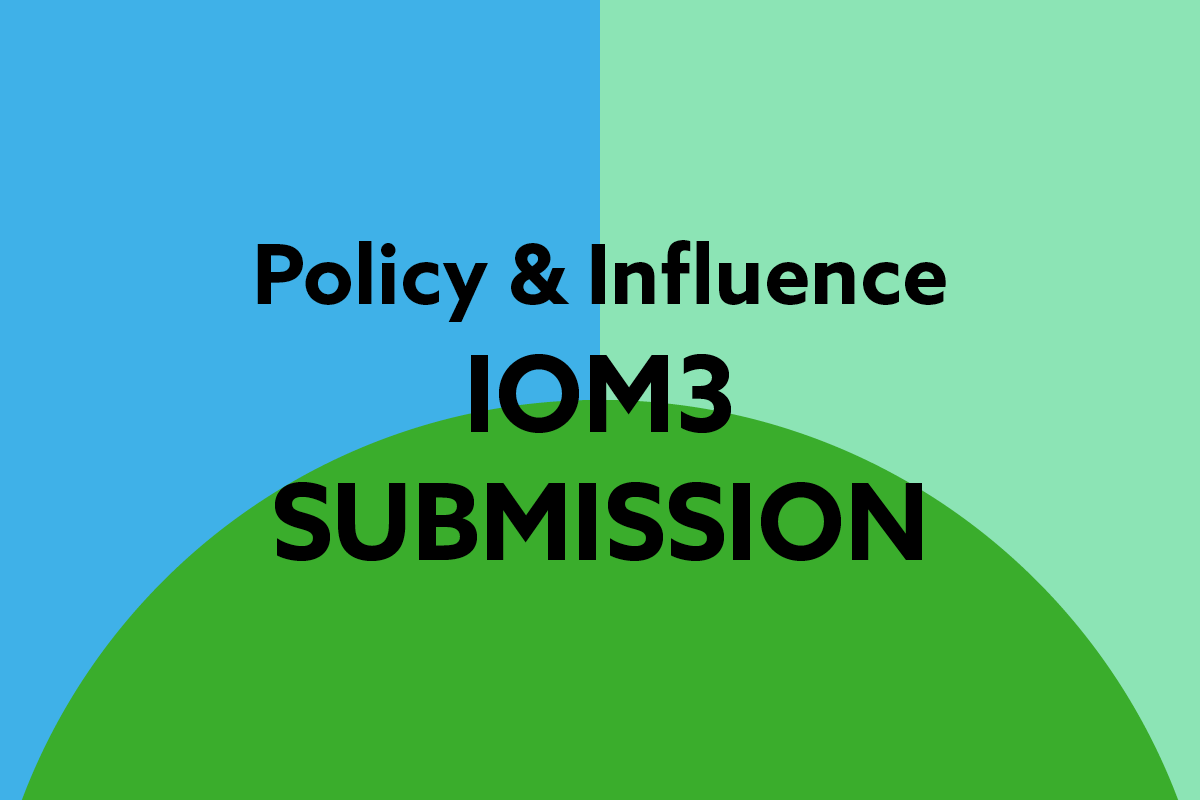IOM3 responds to environmental targets consultation
IOM3 has commented on a new governance framework which seeks to improve laws relating to nature protection.

The Environment Act 2021 requires at least one long-term legally binding target for resource efficiency and waste reduction, water, air quality and biodiversity. The consultation, which closed 27 June 2022, sought views on the proposed targets, their ambition level, and potential future approaches.
IOM3 submitted a response commenting on the proposed targets to:
- Reduce residual waste (excluding major mineral wastes) per capita by 50% by 2042 from 2019 levels (which is estimated to be approximately 560 kg per capita)
- Reduce the length of rivers and estuaries polluted by target substances (cadmium, nickel, lead, copper, zinc, arsenic) from abandoned metal mines by 50% by 2037 against a baseline of around 1500km
- A potential future resource productivity target
IOM3 was disappointed by the absence of a resource productivity target at this stage. Without this, other elements of resource and waste policy in the UK are incomplete in their attempt to drive towards a more circular economy. As work on this target continues, IOM3 will support the proposals outlined as a first step but will also continue to call for a more holistic metric and target.
IOM3 has also called for a target covering ‘major mineral wastes’ in addition to the proposed ‘all residual waste excluding major mineral wastes’ target. The original extraction, processing and transport of construction and demolition waste has environmental impacts that should be considered. In addition, as mining becomes more prevalent in the UK, inclusion of its wastes in an appropriate target would help to drive good practice there too.
IOM3 CEO Colin Church FIMMM CEnv, said, ‘Any ambition to improve resource efficiency, water and air quality and biodiversity whilst reducing waste is in everyone’s best interests. Having said that, without key elements like a resource productivity target, it will make moving towards a circular economy harder and ultimately take longer. IOM3 does support the proposal outlined in the Environment Act 2021 but it is crucial that any targets, however noble, are based on accurate data to meet these aspirations.’
In response to the proposed abandoned metal mines target, IOM3 members highlighted concerns about the lack of accurate data and called for more frequent monitoring and greater consideration of metal contaminants in sediments. There is also a risk that this target will lead to the least polluted rivers being prioritised and IOM3 therefore supports the development of a more robust and holistic target.
Additionally, IOM3 jointly submitted a high-level response as part of the Environmental Policy Forum. The Environment Act 2021 consultation highlights the scale of the challenge facing humanity, whilst making it clear our members are uniquely placed to contribute to a more circular economy.

